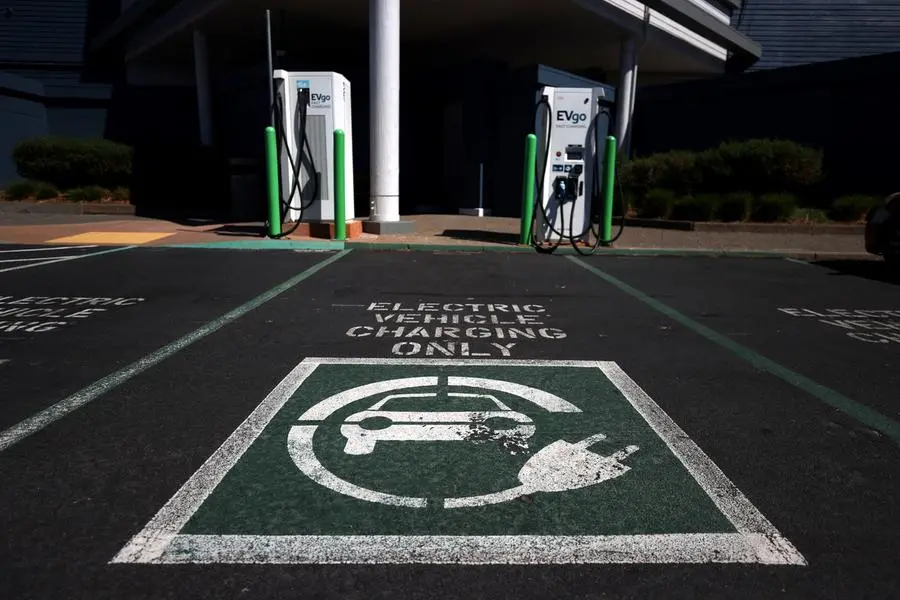PHOTO
Organization of Arab Petroleum Exporting Countries (OAPEC) Secretary General Jamal Al-Loughani announced Wednesday the impact of the recent electric vehicle industry expansion would not hinder the global demand for oil in short and medium terms.
According to a recent study conducted on electronic vehicles (e-vehicles) commissioned by OAPEC titled "Electric Vehicles: Realities and Prospects," transportation is an important part of everyday life, where e-vehicle sales have taken precedence over conventional combustion engine equipped vehicles.
Though e-vehicles have been in the process of replacing conventional methods of vehicle transportation since 2008, there are obstacles e-vehicle manufacturers have yet to address.
Therefore, the manufactures focused on having their e-vehicles furnished and equipped with state-of-the-art features that would better their performance, increasing consumers' interest, and subsequently competing with conventional vehicles in the market.
The study brought to attention the negative environmental impacts of conventional vehicles, where carbon dioxide emissions have a hand in climate change as opposed to the "environmentally friendly" e-vehicles.
The common and repeated term "environmentally friendly," elaborated Al-Loughani, is in need of reevaluation, where prejudiced opinions against conventional transportation are not at the forefront.
The objective reevaluation of e-vehicles' limited carbon footprint on the environment should consider battery maintenance and electric charge sources amongst other concerns.
Notwithstanding the current obstacles e-vehicles face, it is apparent that e-vehicles reduce pollution in crowded cities and might improve their positive impact on the environment if these vehicles generated electricity from sustainable sources, Al-Loughani added.
Currently, e-vehicles' high costs are in need of monetary support from the government, indicating that profits are not always direct. However, positive and environmental return in the future may constitute a justification for governmental financial support.
Al-Loughani affirmed the interest of most Arab countries in e-vehicles' potential environmental sustainability.
However, Al-Loughani underscored the importance of examining some potential setbacks in switching completely to e-vehicles, such as locating the pressure point on electricity networks, demand for electricity, and the needed infrastructure in handling the quantity of electricity to charge and sustain e-vehicles.
The study asserted that renewable energy sources are not enough to secure the necessary and sustainable demand, underlining the need for fossil fuels for adequate energy generation, and concluding with global oil demand not being significantly impacted by the rise of e-vehicle sales in the near future. (end) km.za
All KUNA right are reserved © 2022. Provided by SyndiGate Media Inc. (Syndigate.info).





















